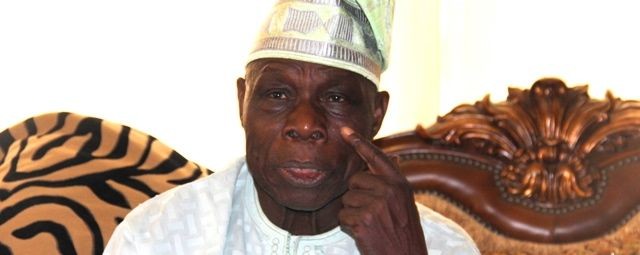The author, a human rights worker, says that the African Union should make public the findings of its commission of inquiry.
Just two weeks after conflict broke out in South Sudan on December 15, 2013, with evidence that war crimes were in progress, the African Union (AU)’s Chairperson took action. Dr. Nkosazana Dlamini Zuma set up the first ever AU Commission of Inquiry to investigate the ongoing crimes and recommend paths to peace and justice. Nearly a year later, the commission has yet to publish its report.
This missing piece is especially poignant today, the anniversary of South Sudan’s new war, which has brought some of the worst abuses South Sudanese have experienced – including possible crimes against humanity.
The report, apparently finished weeks ago, should be made public now. Or at least Zuma or the commission’s head, former Nigerian President Olesugun Obasanjo, should update the South Sudanese public on where the report stands, and say when it will be published and who will get to review it before it is made public.
South Sudanese civilians have suffered repeated abuses at the hands of men in power and their armed forces. Decades of impunity for past crimes have fuelled the brutality of this crisis, including ethnically motivated attacks and revenge killings.
And the pattern continues. South Sudan’s government has taken no action to hold abusive leaders or soldiers to account. Army and police reports about the killings in Juba last December have been buried and, except for the national human rights commission, no South Sudanese officials have called for criminal investigations into the human rights abuses.
As far as we can tell, Riak Machar’s opposition forces have made no serious efforts to hold abusive forces to account, either. A strong AU report could be a game changer for South Sudan.
UN officials and diplomats are waiting for the report to guide them on what should be done to support justice for South Sudanese this time. A strong report would recommend holding abusers to account before a court of law. Recent Human Rights Watch research indicates that fair credible trials for the most serious crimes before domestic courts are not realistic in the short term and international assistance is needed.
It would also recommend an arms embargo and UN Security Council sanctions against individuals implicated in the worst crimes. That would, we hope, end the months of dilly-dallying by the US and other Security Council members on both of these crucial measures.
But we’re losing time. The dry season has begun, enabling troop movements and increasing the chances of more conflict and abuses.
South Sudanese were promised the truth; they deserve to hear it now.
File photo: Olesugun Obasanjo
The views expressed in ‘opinion’ articles published by Radio Tamazuj are solely those of the writer. The veracity of any claims made are the responsibility of the author, not Radio Tamazuj.




